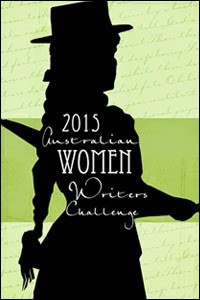This is the second in a series of posts about Jodi Picoult’s use of false rape allegations as a plot device. The first is here, you will find the third here when it goes up tomorrow and the fourth here the day after. In this post, I address the specific issues raised by The Tenth Circle, which I think is the least offensive of the two books I’m going to talk about.
It’s been a while since I read the book, and I’m writing this post from memory, because I’m really disinclined to go back and re-read the book. Apologies for any errors. By the way: SPOILER ALERT!
The book is largely written from the perspective of a man who is the father of a teenage daughter (who I think is called Tracy). His wife is a lecturer on Dante (and maybe Italian poetry in general?) at the local university (I think her name is Laura). I can’t remember if they have children other than Tracy.
Parts of the book are written from Laura’s and Tracy’s perspectives, and maybe some other people as well.
The father is somewhat overprotective of Tracy, but he recognises that he’s sometimes rather unreasonable. He talks about her going out on dates – and about restraining himself from biting her date’s head off.
Laura is having an affair with one of her students. It turns out he’s the local drug dealer. Anyway, because of this affair, she’s a little distracted when it comes to her daughter. Of course.
Tracy goes to a party with her best friend (maybe at her best friend’s place). Tracy has an enormous crush on a guy, and he’ll be at the party (I think that she may have actually gone on a date with him earlier in the book, too). Before going to the party, she makes a visit to the local drug dealer. I think she wants to buy some hash (or maybe E?), but he doesn’t have any (or doesn’t have as much as she wants), and offers her some clear liquid in a small vial instead of or as well as what she wants. I can’t remember if it’s identified or if I just assumed that it’s what’s known as “Liquid E” or “GBH” (gamma-hydroxybutanol). Its effect is nothing like E, so the term “Liquid E” is misleading. It’s a depressant. It basically knocks you out. It’s clear, colourless and apparently tasteless.
The next day, Tracy accuses the guy she has (had?) the crush on of rape.
Everyone believes her.
She acts like a rape victim is “supposed” to act – basically, that means that she acts guilty and ashamed etc etc – which apparently enhances her credibility. So she has a whole lot of people comforting her and telling her it wasn’t her fault.
The stuff about the drugs emerges later in the book (particularly, the fact that Tracy obtained them), and so it’s not entirely clear that it’s a false allegation anyway. And you know what? Even though she was the one who obtained the drugs, it wasn’t really a false allegation, because it sounds like the guy still raped her in that sexual intercourse took place and she was too out of it to consent. However, Picoult treats it like a false allegation, and that really annoyed me.
I think what happens next is that the police find out about the drugs, and so they withdraw the charges against the guy. Tracy’s parents are pissed off because they don’t get justice for their daughter (and Tracy is still upset and ashamed and guilty and so on – but it’s presented that she feels this way because of the lies and the drugs, not because of the rape). To me, it seemed like Picoult treated the withdrawal of the charges as the right thing to do. Certainly, it’s entirely possible that that’s what would happen in real life – but on the basis that it would be difficult or impossible to get a conviction, not because it’s not really rape. And that’s an ethico-legal problem in itself – and one that is left unexamined by Picoult.
Anyway, Laura is especially upset because she feels like if she hadn’t been sleeping with the local drug dealer, maybe none of this would have happened.
The boy – whose life is now completely ruined because everyone believes Tracy (and he was some sporting hero and was kicked off the team, and so on) – dies by falling off a bridge. There’s a question about whether he was pushed. Or maybe he was just drunk. (We do find out how he fell off, but I won’t spoil that for you – I’ll just say that it’s not exactly a surprise.)
I haven’t mentioned the father a whole lot, despite the fact that a lot of the story is told from his perspective. The major story arc of the book is about him coming to terms with the fact that his daughter is no longer a child and doesn’t/shouldn’t require his protection AND ALSO the fact that he cannot protect her from everything BUT we wind up with a nice little message about how everyone needs their father sometimes and the protection of a father can be nice from time to time.
Here are the messages I draw out of The Tenth Circle (as relevant to this discussion:
– teenage girls who buy drugs are sluts who deserve to be raped
– teenage girls who make false rape accusations will be believed and comforted immediately
– local sports stars about whom rape allegations are made will be shunned immediately, and nobody will take their side
– mothers who have affairs are sluts who neglect their children
– rapists deserve to die, even if they are local sport stars
– daddies should be super-protective and daughters should appreciate it
I think these messages are inappropriate and not true to real life.
Look, Picoult probably didn’t intend all these messages to come out of The Tenth Circle, and to be honest, some of them are not so black and white as all that (for example, the death of the rapist is left as a grey issue, but ultimately, Picoult still seems to condone it to some extent). And, yes, the major story arc in the book was: daddy and daughter learning how to balance the “daddy’s little girl – protective daddy” roles with the “sophisticated young woman – friendly daddy” roles, and the emotional issues around that were explored reasonably well. I mean, I think the father was inappropriately over-protective sometimes, but that happens in real life. But did Picoult really have to use rape as a plot device? In particular, did she have to use a supposedly false rape allegation which was actually about a real rape which she wrote as fake?
I’ll develop these ideas more in Part IV, which you will be able to find here the day after tomorrow. Tomorrow, in Part III (which will be here), I’ll outline Salem Falls and the messages I see emerging from that.




[…] posts about Jodi Picoult’s use of false rape allegations as a plot device. The first is here, the second is here and you will find the fourth here when it goes up tomorrow. In this post, I address the specific […]
[…] posts about Jodi Picoult’s use of false rape allegations as a plot device. The first is here, the second is here and the third is here. In this post, I attempt to draw the discussion to some kind of […]
I’ve read the book, and I didn’t interpret it as a false rape report. Kicking the rapist of the team was seen as her fault by the high school kids (even her best friend accused her of false reporting as a way to get revenge for being dumped (the rapist was her ex)). I think the book showed a lot of the back-lash against rape victims and that even though her testimony is changed over time it doesn’t mean she’s lying…
But maybe that’s just me…
Mortality, you may well be right, and if that’s the case, I apologise (to Picoult and to her readers everywhere!).
As I said in the post, it has been a while since I read it, and maybe my disinclination to re-read it is no excuse for my laziness (although I no longer have a copy, that’s my other excuse ;) ).
Assuming your memory is better than mine (it certainly sounds like it is!), then yes, this would seem an accurate statement: “the book showed a lot of the back-lash against rape victims and that even though her testimony is changed over time it doesn’t mean she’s lying…”
Having said that, I remember feeling at the time that there had been a suggestion by Picoult that Tracy was lying, and also that there’s some sort of condoning – by Picoult – of the view that even if Tracy couldn’t quite remember, she shouldn’t have spoken up, and also of the view that the “poor guy” was punished too harshly by being kicked off the team. That could just be me, though :)
The fact that I didn’t have an enormously strong memory of the book is one of the reasons why I focused the series as a whole (although not this post) more strongly on Salem Falls, and I guess I included The Tenth Circle more to show that it’s not the only time she’s stepped too close to the line, in my opinion.